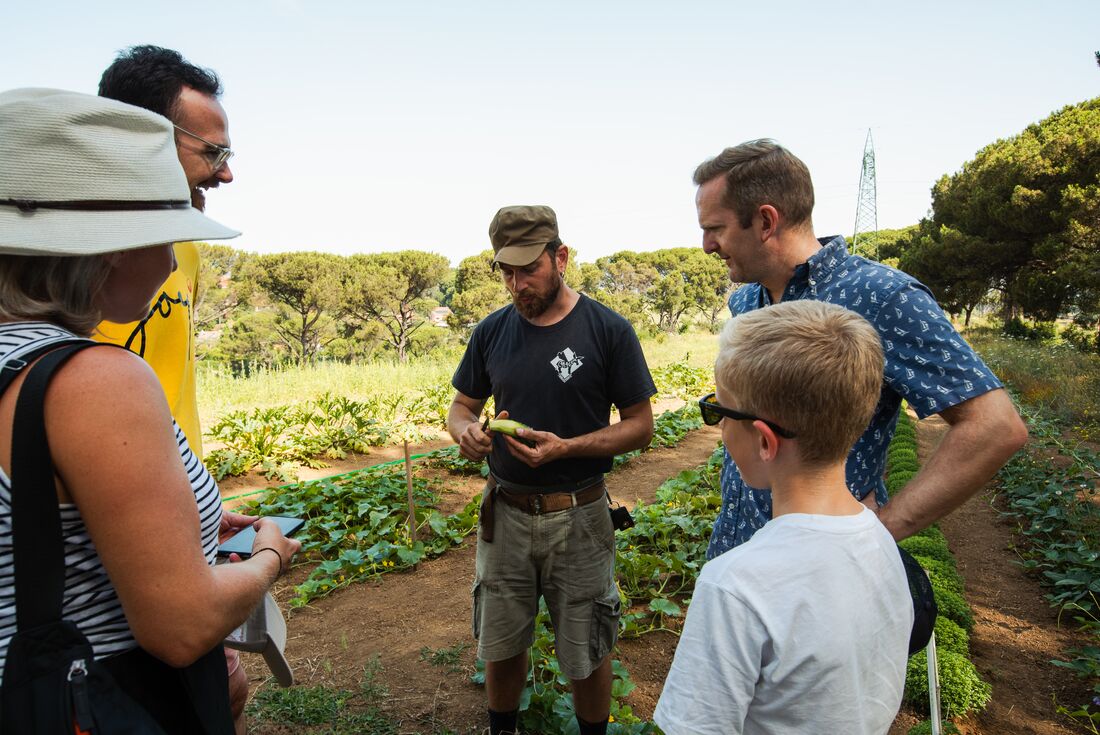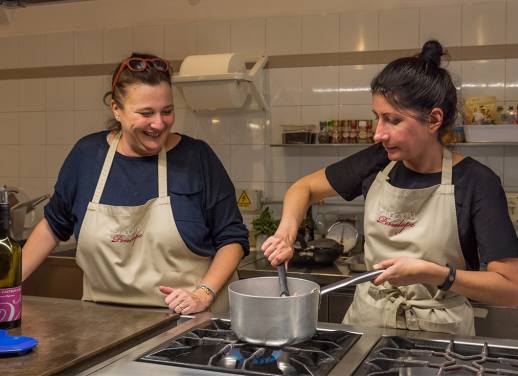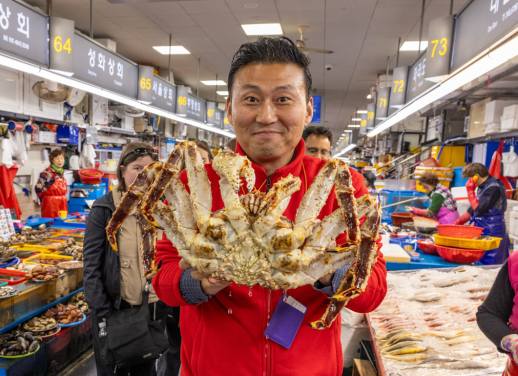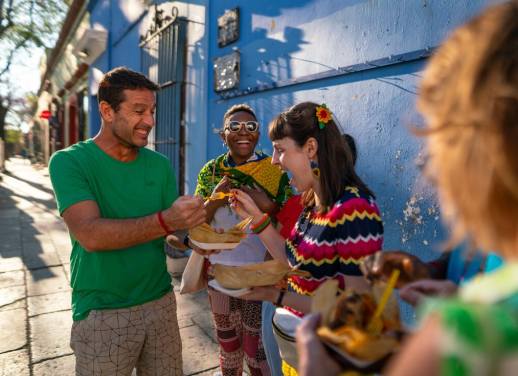This Intrepid Foundation partner in Italy is challenging their government’s status quo and giving new life to land that no one wanted. And, it’s all in the name of sustainable agriculture.
It was 2011 when Giacomo Lepri and seven of his environmentally minded mates put their farmer’s hats together and brainstormed ways to create a more sustainable outlook for Rome’s future.
At the time, Giacomo was working in agriculture and his friends spanned one end of the supply chain to the other – from farms outside the city to restaurant tables in the heart of it. Giacomo tells me they each had a firsthand look at the way unsustainable farming practices and long food supply chains damaged the environment they cared so much about.
Together, they decided to do something about these concerns and the figurative seed for Cooperativa Coraggio was planted.
Fast-forward to today, and Giacomo and the Cooperativa Coraggio team have managed the Borghetto San Carlo Agricultural Estate on the outskirts of Rome since 2015. Their 22-hectare regenerated green space works threefold: providing jobs for local people, producing fresh, organic ingredients to feed some of Rome’s best restaurants and creating a peaceful space for locals to connect.
Travellers on Intrepid’s brand-new Paris to Rome by rail trip will get a first-hand look at (and taste of) the work going on at Cooperativa Coraggio with a special cooking demonstration and lunch at the farm. For everyone else, I sat down with Giacomo to get the inside scoop on what makes this place in the countryside of Rome so special.
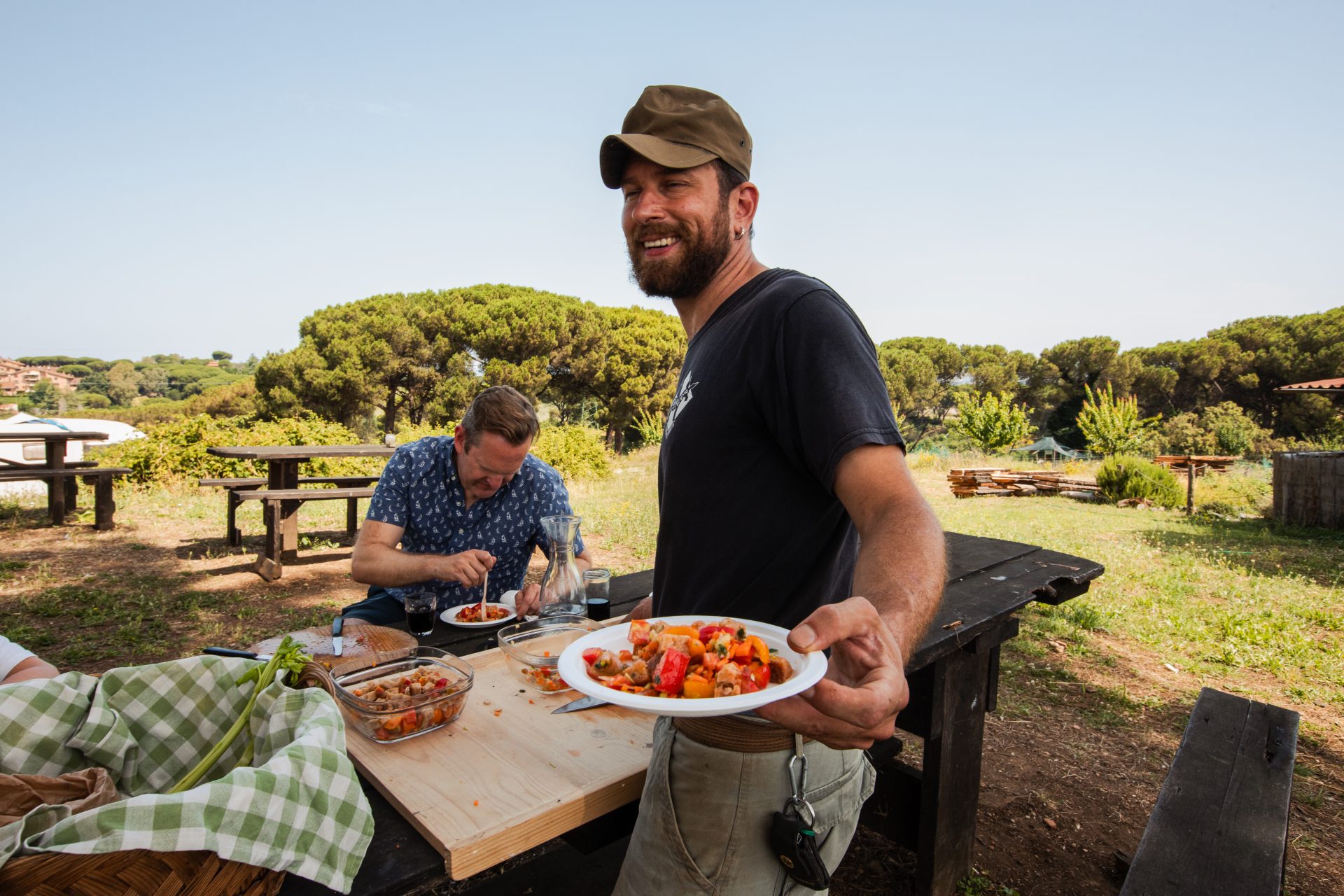
I asked Giacomo what inspired the creation of the venture and he simply responded, ‘We created a list of all the problems and the solutions.’
His straightforward approach to a long list of complex issues made it look easy. And over the next hour we discussed all things sustainable agriculture and organic farming and I learnt how his team instigated significant change at a government level.
Declining green spaces
One problem was clear. Green spaces surrounding major cities around the world are declining. Put simply, as populations grow, so do housing developments.
However, Giacomo explains the issue is more complex for Italy, as ancient ruins or artefacts are often uncovered during development, which brings construction to a roaring halt.
Given the country is essentially one huge archaeological site, he tells me, ‘In Rome, wherever you dig, you will find something.’
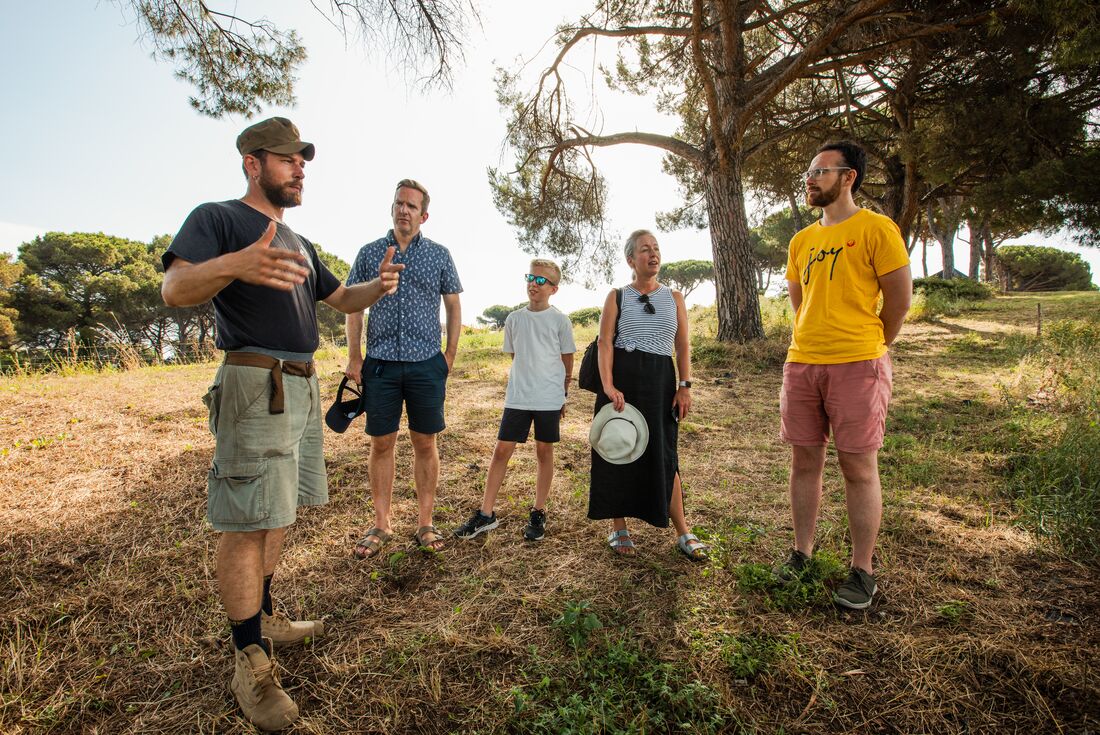
If a slice of land is deemed of archaeological importance, the development can be denied, and the area becomes public land. Giacomo tells me that usually, this land is left barren, deserted and often becomes a hangout for troubled youngsters and petty crime.
Cultivating change
Giacomo recalls their 22 hectares of Borghetto San Carlo were initially destined to be a housing development and shopping mall until archaeological remains were uncovered during development.
Green space was going to waste on the outskirts of a city that desperately needed more room for social connection and sustainable farming. So, the Cooperativa Coraggio team challenged the government claim on the land.
They petitioned the government to give them access to Borghetto San Carlo – they won and paved a path for other young, sustainable farmers to create their own green space.
Throughout the years, we’ve created courses for young people in agriculture. They came to us to learn about this field of work and then created their own project.
Giacomo grins proudly as he explains, ‘Thanks to our work, [the local government] created this public announcement where they’re willing to entrust these lands to people who they think are the most reliable to bring their sustainable farming projects to life.’
By setting this precedent, they allowed other young sustainable farmers to follow in their footsteps and gain access to their own piece of land to regenerate in their own way.
‘The overall aim is to continue this work to entrust public lands to people – especially to young people who are either disadvantaged or don’t have the economic means to start a new project,’ he says.
It was a big win, not just for him and his mates but for the region as a whole.
‘Throughout the years, we’ve created courses for young people in agriculture. They came to us to learn about this field of work and then created their own project,’ Giacomo shares.
Sowing seeds of sustainability
Borghetto San Carlo Agricultural Estate is still technically public land, rented out on a 30-year lease to Cooperativa Coraggio. The upside of this? The space is always open for the public to come and connect.
Giacomo explains, ‘The gates are always open, and people can come for a walk with the dogs, or they can use the picnic area where we provide barbecue spots.’
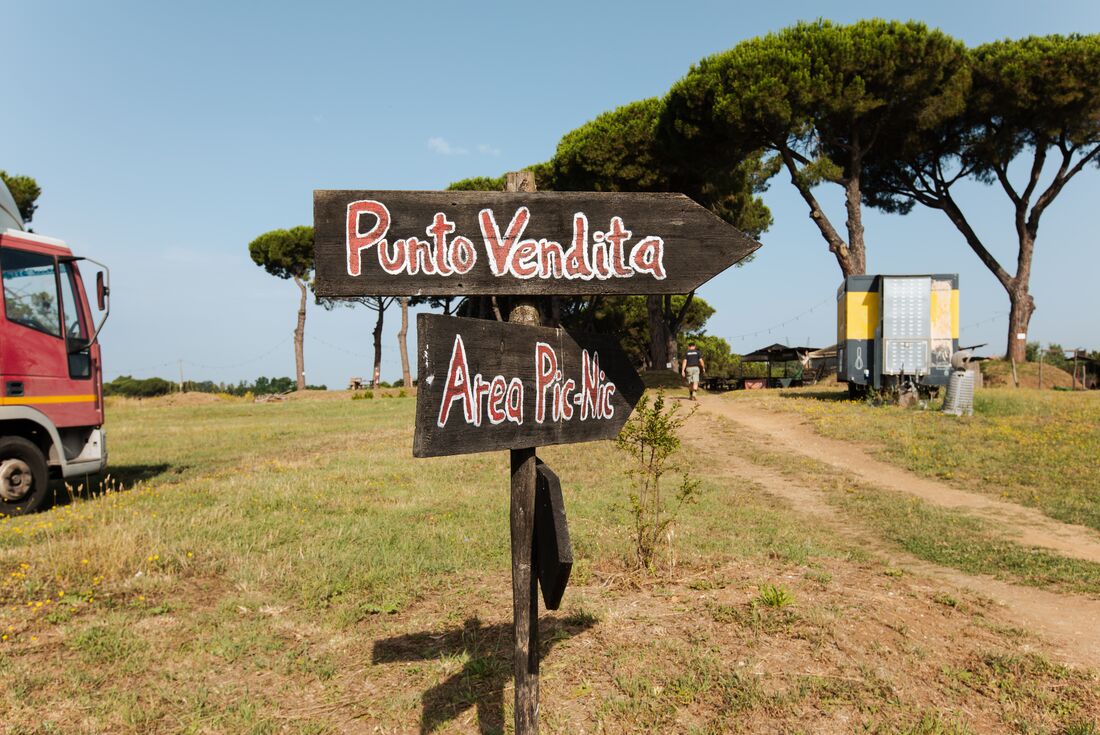
He continues, ‘We organise events, and people can just come, and they can eat the food that we produce.’
The team at Cooperativa Coraggio grow vegetables, cereals and legumes and tend to an orchard and olive grove.
The gates are always open, and people can come for a walk with the dogs, or they can use the picnic area where we provide barbecue spots.
Giacomo tells me, ‘One of my proudest moments was harvesting our first crop of wheat – a lot of work goes into it.’
They supply restaurants throughout Rome with fresh produce, shortening the food supply chain and raising awareness of the importance of organic, sustainably farmed ingredients.
They even supply world-renowned chef Gabriele Bonci with fresh ingredients for his famed pizza joint in Rome, Bonci Pizzarium. Bonci and his mouth-watering pizza made from ‘only the freshest, natural ingredients available’ have been featured in Conde Nast Traveler, Time Out and even have their own episode on the Netflix documentary series, Chef’s Table.
Where to next?
There are big plans for Borghetto San Carlo. They’re continuing to restore a collection of historic farmhouses on the property. Here, they plan to house an onsite restaurant with Bonci – combining their passions for good food and good agriculture to create a space where people can enjoy a meal made with ingredients direct from the land.
Giacomo tells me more about his plans for the farm, ‘We’re bringing back old traditions but finding new ways to do it because we need to adapt to a changing climate.’
It’s around helping make the produce even more sustainable; even better for the environment, but also educating people.
‘It’s a beautiful thing we’re doing, but it’s hard work,’ he explains. ‘It’s around helping make the produce even more sustainable; even better for the environment, but also educating people,’ he continues.
Support from The Intrepid Foundation will help sustain the land and workers at Borghetto San Carlo Agricultural Estate. They’re also working to provide more education in sustainable farming and skills training for locals to learn how to farm responsibly in a way that’s good for the environment.
The Intrepid Foundation proudly partners with Cooperativa Coraggio; find out how you can support them via The Intrepid Foundation. Join Intrepid’s Paris to Rome by rail trip and visit Borghetto San Carlo Agricultural Estate for yourself.
Note: Giacomo and I swapped stories with the help of a translator who shared my questions with him in Italian and his responses with me in English.

